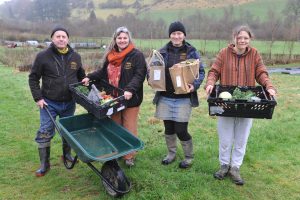 HARVEST produced some very encouraging yields, despite some nationwide weather aggravation in August. It was the year when the UK broke the world wheat record twice, and also took the record yield for oilseed rape.
HARVEST produced some very encouraging yields, despite some nationwide weather aggravation in August. It was the year when the UK broke the world wheat record twice, and also took the record yield for oilseed rape.
The NFU Harvest Survey showed a 6% rise in wheat yields year-on-year to 9.1t/ha. The 2015 wheat harvest for the UK is 16.4 million tonnes, a decrease of 1.0% on 2014 but the second largest since 2008 after Defra adjusted their initial estimate in December to 9.0t/ha, a new record and in line with NFU’s earlier results.
The yield for all barley has increased by 4.6% since 2014 to 6.7 tonnes per hectare and total production was up 6.6% to 7.37 million tonnes in 2015. Despite a 3.3% reduction in planted area, the UK oilseed rape harvest has shown an increase of 3.4% to just over 2.5 million tonnes for 2015. This increase in production has been a result of a 6.9% increase in yield from 3.6 tonnes per hectare in 2014 to 3.9 tonnes per hectare in 2015. The East bucked this trend with a yield decrease of 3.6% on 2014, and a production decrease of 8.6%.
Grain Markets: Wheat: since early October UK futures prices have reamed at similar, low levels of around £110/t, with a £8/t weakening in rapeseed price on Paris markets.
Despite El-Niño concerns in Brazil, soyabean production there for 2015/16 is forecast to exceed 100Mt. AHDB also point out that, for wheat markets, the implication of falling oil prices and subsequently a record low Rouble links to Russia’s ability to export. The current policy implications of the falling Russian currency means increases for the effective export tax and a more difficult time for their exporters.
UK signed a barley export protocol with China in November. This was brokered by AHDB’s British Cereal Exports with Red Tractor, NFU and other industry and government partners. China imports 7-8 m tonnes of barley, mostly for brewing, from a limited number of countries under strict plant health protocols.
New regulation of forward grain sales (MiFID II): NFU is working to hold onto successes won in lobbying to allow farmers to continue using forward contracts and futures markets. While the areas NFU identified as problematic have been addressed in draft legislative and technical documents, some in the European Parliament and NGO groups are unhappy with the proposed solutions. NFU will keep in front of legislators to ensure farmers can continue to protect themselves against price risk without committing physical grain sales.
Biofuel: The NFU has continued to meet with MPs and civil servants to influence the formation of policy due to be included in the forthcoming Government consultation. This consultation will include the contentious issue of where the UK will set the ‘crop cap’, which will seek to limit the volume of crops able to be used in biofuel production, and so we have been explaining how the loss of the biofuels market would negatively impact UK Agriculture.
The NFU has been actively supporting AHDB in their work to recalculate the greenhouse gas emissions attributable to UK oilseed and cereal crops in order to take into account the recent findings of the MIN-NO project and to keep open valuable EU biofuel markets to which the NFU had gained access.















Add Comment